The ‘Healthy’ Foods That Are Secretly Destroying Your Heart

You’re doing everything right—eating “healthy” foods, skipping junk, watching your cholesterol. Yet your heart still feels off, your energy dips, and your blood pressure creeps up. What gives?
The truth? Some so-called “healthy” foods are silent saboteurs. They wear a health halo but quietly inflame your arteries, spike blood sugar, and mess with your metabolism. You think you’re fueling your body, but you might be feeding the very thing that leads to heart disease, stroke, or worse. It’s not just misleading—it’s dangerous.
In this eye-opening article, we uncover the top everyday foods that pretend to be heart-friendly but are actually harming you from the inside out. If you care about your heart, you’ll want to know what to toss from your plate immediately. Read on before your next “healthy” meal does more damage than good.
1. Granola Bars – The Hidden Sugar Bombs
Commercial granola bars are often marketing mirages that contain as much sugar as candy bars, with some varieties packing 15-20 grams of sugar per serving Good HousekeepingHealthline. Studies indicate that high consumption of processed and sugary foods can increase your risk of metabolic syndrome, which is a group of conditions that can lead to diabetes, stroke, and heart disease Healthy Granola Bars: Fact or Fiction?.
Commercially manufactured granola bars, on average, contain as much sugar as many candy bars Do you think granola bars are actually healthy, or are they filled with too many sugars? – Quora. These seemingly innocent snacks are loaded with processed ingredients, artificial sweeteners, and hidden sugars that create rapid blood glucose spikes.
The sugar alcohols and artificial additives found in many granola bars can negatively impact health Healthy Granola Bars: Fact or Fiction?. What appears to be a wholesome, fiber-rich snack often delivers more sugar than nutrition, contributing to inflammation and cardiovascular stress.
3 Heart-Smart Tips:
- Read labels carefully – Choose bars with less than 6 grams of added sugar and whole food ingredients listed first
- Make your own – Combine oats, nuts, seeds, and a small amount of honey for a genuinely healthy alternative
- Check the ingredient count – Avoid bars with more than 8-10 ingredients or unrecognizable chemical names
2. Smoothies – The Liquid Sugar Trap
Even homemade smoothies can contain a whopping 65g carbs and 37g sugar – just 2g shy of the sugar content in an entire can of full-sugar Coca-Cola Are smoothies healthy? The sugar-laden truth | Blog – Purition UK. When you blend fruit, the natural sugars are released from within the cell walls of the fruit and become “free sugars” 5 reasons why smoothies are not a shortcut to a healthy diet – BHF.
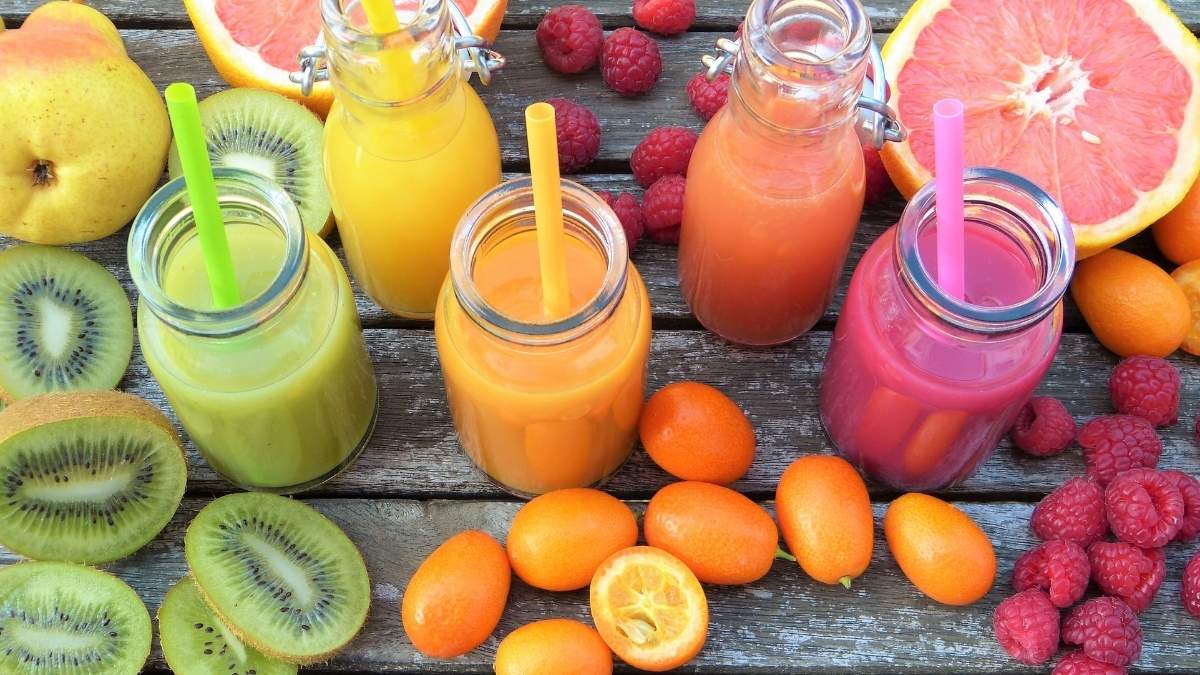
The American Heart Association recommends limiting your intake of added sugar to no more than 9 teaspoons (37.5 grams) per day for men and 6 teaspoons (25 grams) per day for women Are Smoothies Good for You?. Routinely consuming too much added sugar may increase your risk of chronic ailments like heart disease, diabetes, and liver disease Are Smoothies Good for You?.
The blending process destroys the natural fiber matrix that normally slows sugar absorption, causing rapid insulin spikes. Sipping on a sugar-packed smoothie for breakfast could seriously rev up your appetite and calorie intake later in the day Are smoothies healthy? The sugar-laden truth | Blog – Purition UK.
3 Heart-Smart Tips:
- Limit fruit portions – Use no more than 1 cup of fruit total and add vegetables like spinach or cucumber for volume
- Add protein and healthy fats – Include Greek yogurt, nuts, or seeds to slow sugar absorption and increase satiety
- Keep portions small – Stick to 12-16 ounces maximum and treat smoothies as meals, not drinks alongside food
3. Coconut Oil – The Saturated Fat Wolf in Sheep’s Clothing
Coconut oil contains 82% saturated fat, which is higher than butter at 63% and significantly more than other cooking oils CirculationNovant Health. Recent American Heart Association studies show coconut oil raises LDL “bad” cholesterol in 7 out of 7 clinical trials The Effect of Coconut Oil Consumption on Cardiovascular Risk Factors | Circulation.
Credit : Dr. Eric Berg DC
The 10.47 mg/dL increase in LDL-cholesterol resulting from the replacement of nontropical vegetable oils with coconut oil may translate to a 6% increase in risk of major vascular events The Effect of Coconut Oil Consumption on Cardiovascular Risk Factors | Circulation. More than 80% of coconut oil is saturated fat, with one tablespoon containing 12 grams of saturated fat – basically putting coconut oil on par with bacon grease Coconut Oil: Not as Healthy as You Think.
Despite marketing claims calling coconut oil a natural, healthful product, it has a known action to increase LDL cholesterol, an established cause of atherosclerosis and cardiovascular events Coconut Oil and Heart Health | Circulation. A single tablespoon of coconut oil would use up your entire day’s allotment of saturated fat Coconut Oil: Not as Healthy as You Think.
3 Heart-Smart Tips:
- Switch to olive oil – Use extra virgin olive oil for cooking and dressings, which has proven cardiovascular benefits
- Use coconut oil sparingly – If you must use it, limit to special occasions and small amounts for flavor only
- Read nutrition labels – Choose oils with less than 2 grams of saturated fat per tablespoon for daily cooking
4. Flavored Yogurt – The Breakfast Dessert
Flavored yogurts are full of added sugar, with links to weight gain, high blood pressure, inflammation, and heart disease 16 Foods That Are Bad for Your Heart. Many popular flavored yogurt brands contain 15-25 grams of added sugar per serving, effectively transforming this supposedly healthy probiotic food into a dessert-level sugar bomb.
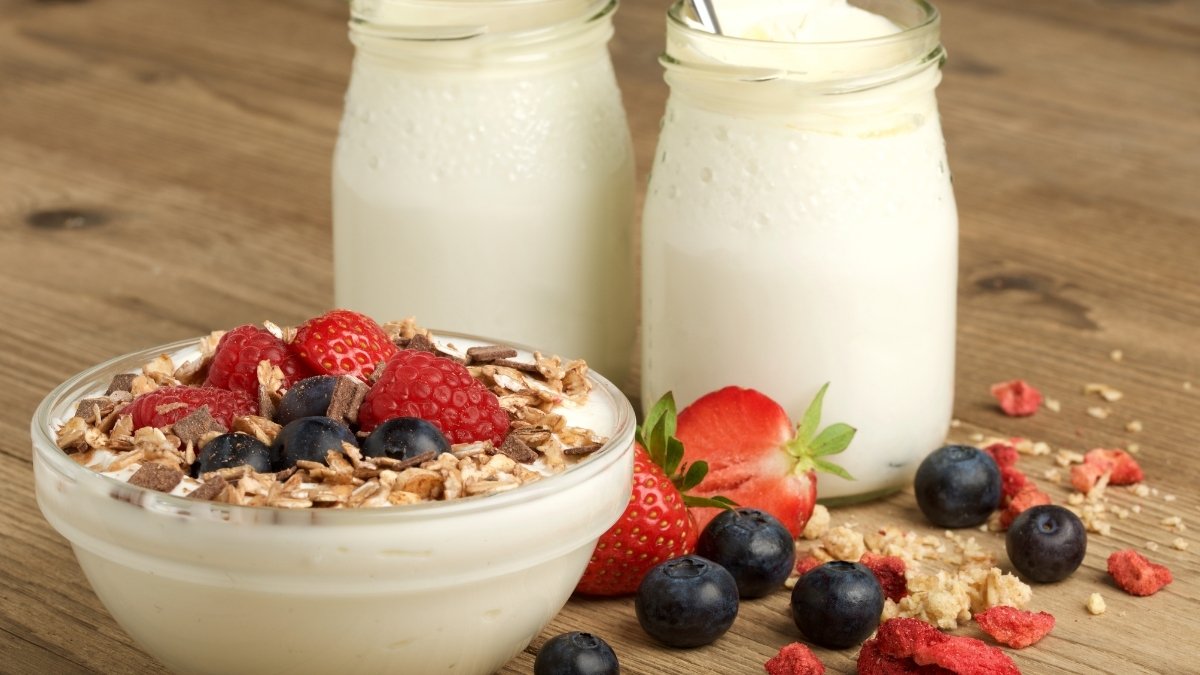
Some yogurt products are dessert-level sweet, so checking the label and choosing those lower in added sugar is essential for a healthier option How to Make a Healthy Smoothie | Johns Hopkins Medicine. The excessive sugar content can trigger inflammation, contribute to weight gain, and lead to metabolic dysfunction that strains cardiovascular health.
For the healthiest choice, get plain low-fat yogurt and add your own fresh fruit, cinnamon, or vanilla for flavor 16 Foods That Are Bad for Your Heart. These sugar-loaded versions can cause blood sugar spikes that, over time, increase the risk of insulin resistance and heart disease.
3 Heart-Smart Tips:
- Choose plain varieties – Buy unsweetened Greek yogurt and add fresh berries or a drizzle of honey for natural sweetness
- Check sugar content – Select yogurts with less than 10 grams of total sugar per serving to avoid hidden added sugars
- Make it protein-rich – Opt for Greek or Icelandic skyr yogurt for higher protein content that helps stabilize blood sugar
5. Protein Bars – The Processed Food Pretenders
Protein bars often contain hidden ingredients like sugar alcohols (erythritol, mannitol, sorbitol), fractionated palm kernel oil, and artificial additives that can cause digestive issues and provide empty calories Hidden Ingredients to Avoid in Protein Bars | Fresh N Lean. Fractionated Palm Kernel Oil results in higher levels of saturated fats, which is ultimately more than Regular Palm Kernel Oil and butter in some cases Hidden Ingredients to Avoid in Protein Bars | Fresh N Lean.
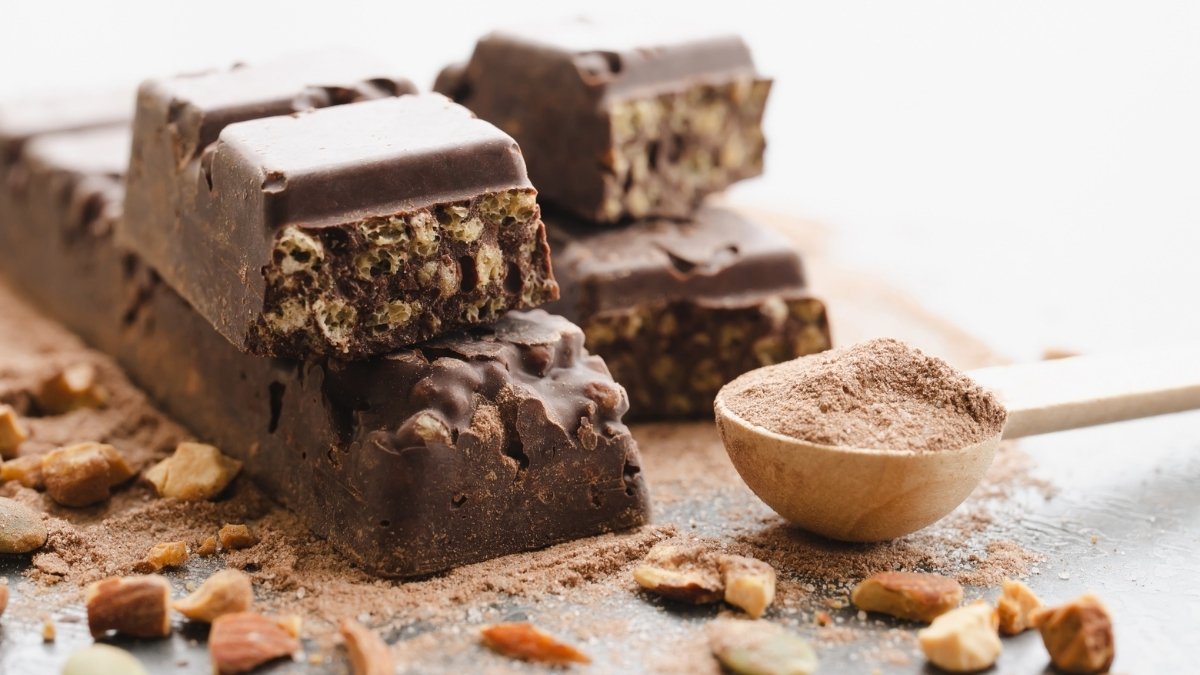
Too much fructose can lead to elevated blood sugar and high triglyceride levels, which can increase the risk of developing type 2 diabetes Hidden Ingredients to Avoid in Protein Bars | Fresh N Lean. Many commercial protein bars masquerade as health foods while containing as much sugar and processed ingredients as conventional candy bars.
Sugar alcohols can cause bloating, gas, and digestive discomfort when consumed in large quantities Hidden Ingredients to Avoid in Protein Bars | Fresh N Lean. Many granola bars are high in saturated fat—the kind that’s bad for heart health, compared to options with heart-healthy unsaturated fats The Best High-Protein Granola Bar, According to a Dietitian.
3 Heart-Smart Tips:
- Read ingredient lists carefully – Avoid bars with more than 10 ingredients or those listing sugar alcohols in the first five ingredients
- Choose whole food options – Look for bars made primarily from nuts, seeds, and dried fruit without artificial additives
- Make your own – Combine dates, nuts, and protein powder for a clean alternative without hidden chemicals
6. Canned Soup – The Sodium Time Bomb
Canned soup often has lots of sodium, which can cause high blood pressure, heart attack, stroke, and heart failure 16 Foods That Are Bad for Your Heart. Adults and children over age 14 should eat less than 2,300 milligrams of sodium a day, but many canned soups contain 800-1,200mg per serving Heart-Healthy Living – Choose Heart-Healthy Foods | NHLBI, NIH. Even supposedly “healthy” vegetable soups can pack up to half your daily sodium limit in a single bowl, directly contributing to hypertension and arterial damage.
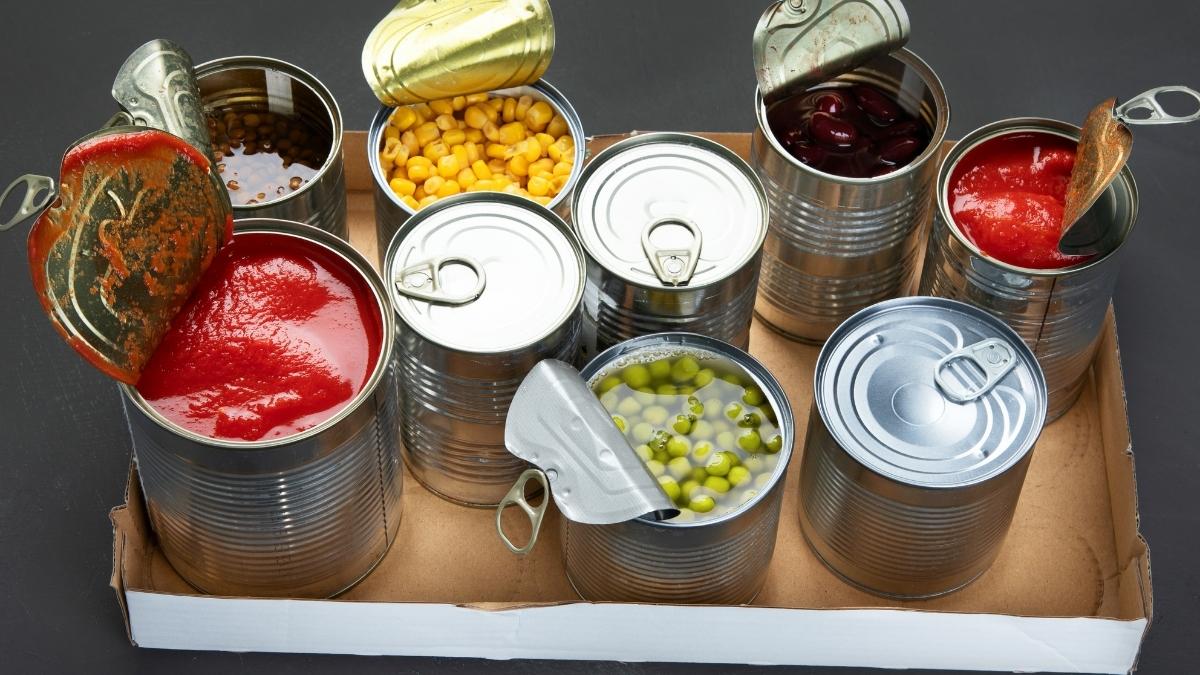
There is a direct relationship between increased salt intake and high blood pressure, with the top sources being packaged and processed foods Heart-Healthy Living – Choose Heart-Healthy Foods | NHLBI, NIH.
Any cream-based soup has unhealthy saturated fat in addition to excessive sodium content 16 Foods That Are Bad for Your Heart. High amounts of sodium can lead to stroke, heart disease, and heart failure by making your heart work harder Heart-Healthy Living – Choose Heart-Healthy Foods | NHLBI, NIH.
3 Heart-Smart Tips:
- Choose low-sodium varieties – Select soups with less than 300mg sodium per serving or “no salt added” versions
- Make homemade soup – Cook from scratch using low-sodium broth and fresh vegetables to control salt content
- Dilute canned soups – Add extra water, low-sodium broth, or vegetables to reduce the sodium concentration per serving
7. Restaurant Salads – The Hidden Calorie Catastrophe
The main ingredients of popular dressings like ranch are typically buttermilk, salt, and sugar, making them high in fat, sodium, and calories – none of that’s good for your heart 16 Foods That Are Bad for Your Heart. Many restaurant salads contain 800-1,500 calories due to high-fat dressings, fried toppings like croutons and bacon bits, cheese, and processed additions that transform healthy greens into caloric disasters.
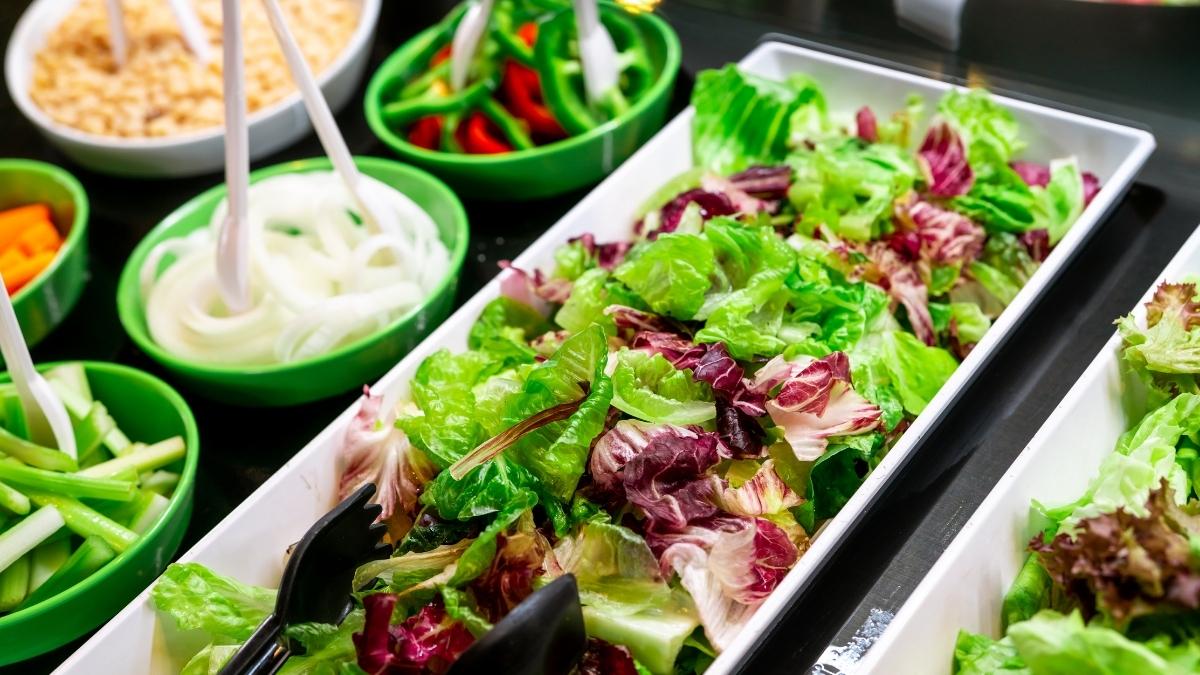
A single serving of ranch dressing can pack 300+ calories and massive amounts of saturated fat, effectively turning a “healthy” salad choice into a heart-damaging meal. You can make a healthier version of creamy dressings by blending low-fat sour cream or cottage cheese with low-fat buttermilk and fresh herbs 16 Foods That Are Bad for Your Heart.
Restaurant salads often include fried chicken, candied nuts, dried fruits with added sugar, and multiple high-calorie toppings. The deceptive nature of these “health halos” leads people to consume excessive calories while believing they’re making heart-healthy choices.
3 Heart-Smart Tips:
- Request dressing on the side – Use only 1-2 tablespoons of dressing instead of the 4-6 tablespoons typically served
- Choose oil-based dressings – Opt for vinaigrettes with olive oil instead of creamy, saturated fat-laden options
- Skip fried additions – Avoid bacon bits, fried chicken, candied nuts, and croutons that add unnecessary calories and unhealthy fats
General Tips:
Read nutrition labels religiously – Check sugar, sodium, and saturated fat content before assuming any packaged food is healthy.
Choose whole foods over processed alternatives – Fresh fruits beat fruit bars, homemade meals beat canned options, and whole grains beat refined products.
Watch portion sizes even with “healthy” foods – Even nutritious foods can harm your heart when consumed in excessive quantities.
Limit added sugars to under 25 grams daily – This includes hidden sugars in smoothies, yogurts, bars, and other seemingly healthy foods.
Final Thought:
The shocking truth is that your “healthy” breakfast smoothie might be doing more damage to your arteries than a donut, and that innocent granola bar could be silently sabotaging your cardiovascular system with every bite. The multi-billion dollar health food industry has masterfully disguised sugar bombs, sodium grenades, and saturated fat landmines as wellness essentials, leaving millions of health-conscious consumers unknowingly accelerating their path to heart disease.
Your heart doesn’t care about marketing claims or trendy superfoods – it only responds to what actually enters your bloodstream, and these seven dietary wolves in sheep’s clothing are delivering dangerous levels of the very substances that fuel inflammation, spike blood pressure, and clog arteries. Take control today, because your heart’s future depends on unmasking these imposters before they claim another victim.






